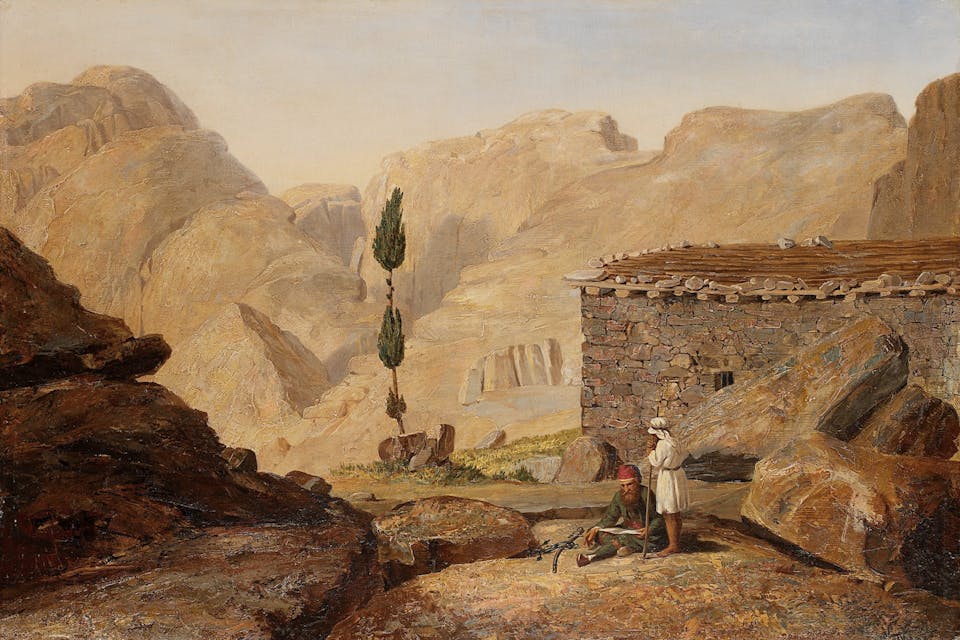
February 19, 2021
Reading Exodus with Leon Kass: Questions to Ask about the Tabernacle
Does the preservation of the covenant depend upon repeated revelations and direct divine encounters, or are there more permanent ways?
Once a week Mosaic has taken to publishing brief excerpts of Leon R. Kass’s new book on Exodus, Founding God’s Nation. Curious about one of the foundational texts of the Jewish tradition? Read along with us. To see earlier excerpts, go here.
This week, Jewish communities all over the world begin their study of Exodus 25:1-27:19, a portion of the text named T’rumah. When we left Moses in last week’s Torah reading, he had entered into the mist atop Mount Sinai. This week, readers are privileged to hear what God there tells him. Rather than additional social ordinances, Moses receives instructions for building God a sanctuary, a Tabernacle that in Hebrew is called a mishkan.
Kass notes important literary antecedents for large-scale building projects in the Hebrew Bible. Some, such as the tower of Babel and the Egyptian store-cities Pthom and Raamses, are the product of uniquely human design. Another antecedent, Noah’s ark, was the product of God’s partnership with humankind. And, of course, there is the most dramatic building of all, the creation of the ordered world that God undertakes in the opening chapter of Genesis. With these antecedents in mind, Kass then raises lingering questions—social, political, and theological—that the text has already introduced, and that an attentive reading of the following chapters may begin to address.